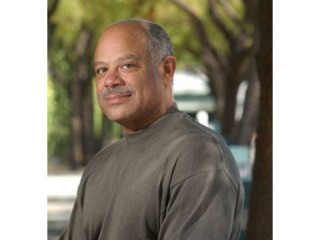
Mark Dean biography
Date of birth : 1957-03-02
Date of death : -
Birthplace : Jefferson City, Tennessee, U.S.
Nationality : American
Category : Science and Technology
Last modified : 2022-02-17
Credited as : IBM engineer, inventor, ISA
83 votes so far
Computer scientist and inventor, Mark is born March 2, 1957, in Jefferson City, Tennessee, Mark Dean and is credited with helping to launch the personal computer age with work that made the machines more accessible and powerful.
The fact that a young African-American man went on to carve out such a significant niche in a field largely dominated by white engineers and scientists isn't all that surprising, given his background. From an early age, Dean showed a love for building things; as a young boy, Dean constructed a tractor from scratch with the help of his father, a supervisor at the Tennessee Valley Authority. Dean also excelled in many different areas, standing out as a gifted athlete and an extremely smart student who graduated with straight A's from Jefferson City High School. In 1979, he graduated at the top of his class at the University of Tennessee, where he studied engineering.
Not long after college, Dean landed a job at IBM, a company he would become associated with for the duration of his career. As an engineer, Dean proved to be a rising star at the company. Working closely with a colleague, Dennis Moeller, Dean developed the new Industry Standard Architecture (ISA) systems bus, a new system that allowed peripheral devices like disk drives, printers, and monitors to be plugged directly into computers. The end result was more efficiency and better integration.
But his groundbreaking work didn't stop there. Dean's research at IBM helped change the accessibility and power of the personal computer. His work led to the development of the color PC monitor and, in 1999, Dean led a team of engineers at IBM's Austin, Texas, lab to create the first gigahertz chip-a revolutionary piece of technology that is able to do a billion calculations a second.
In all, Dean holds three of the company's original nine patents and, in total, has more 20 patents associated with his name.
Despite his early success, Mark Dean continued to further his education. He earned his master's degree in electrical engineering from Florida Atlantic University in 1982. Then, 10 years later, he completed his doctorate in the same field from Stanford University.
While Dean's name isn't quite as well known as maybe other computer pioneers such as Bill Gates and Steve Jobs, the inventor hasn't gone completely unrecognized. In 1996 he was named an IBM fellow, the first African-American ever to receive the honor. A year later he was honored with the Black Engineer of the Year President's Award and was inducted into the National Inventors Hall of Fame. In 2001, he was tapped to be a member of the National Academy of Engineers.
"A lot of kids growing up today aren't told that you can be whatever you want to be," Dean has said. "There may be obstacles, but there are no limits."
In August 2011, writing in his blog, Dean stated that he now uses a tablet computer instead of a PC.
Honors and awards:
Black Engineer of the Year 1997
Ronald H. Brown American Innovators Award 1997
National Inventors Hall of Fame 1997
American Academy of Arts and Sciences
IEEE
Inroads Board of Directors
National Academy of Engineering 2001
National Society of Black Engineers
Phi Kappa Phi Honor Society
Tau Beta Pi Engineering Honor Society
















